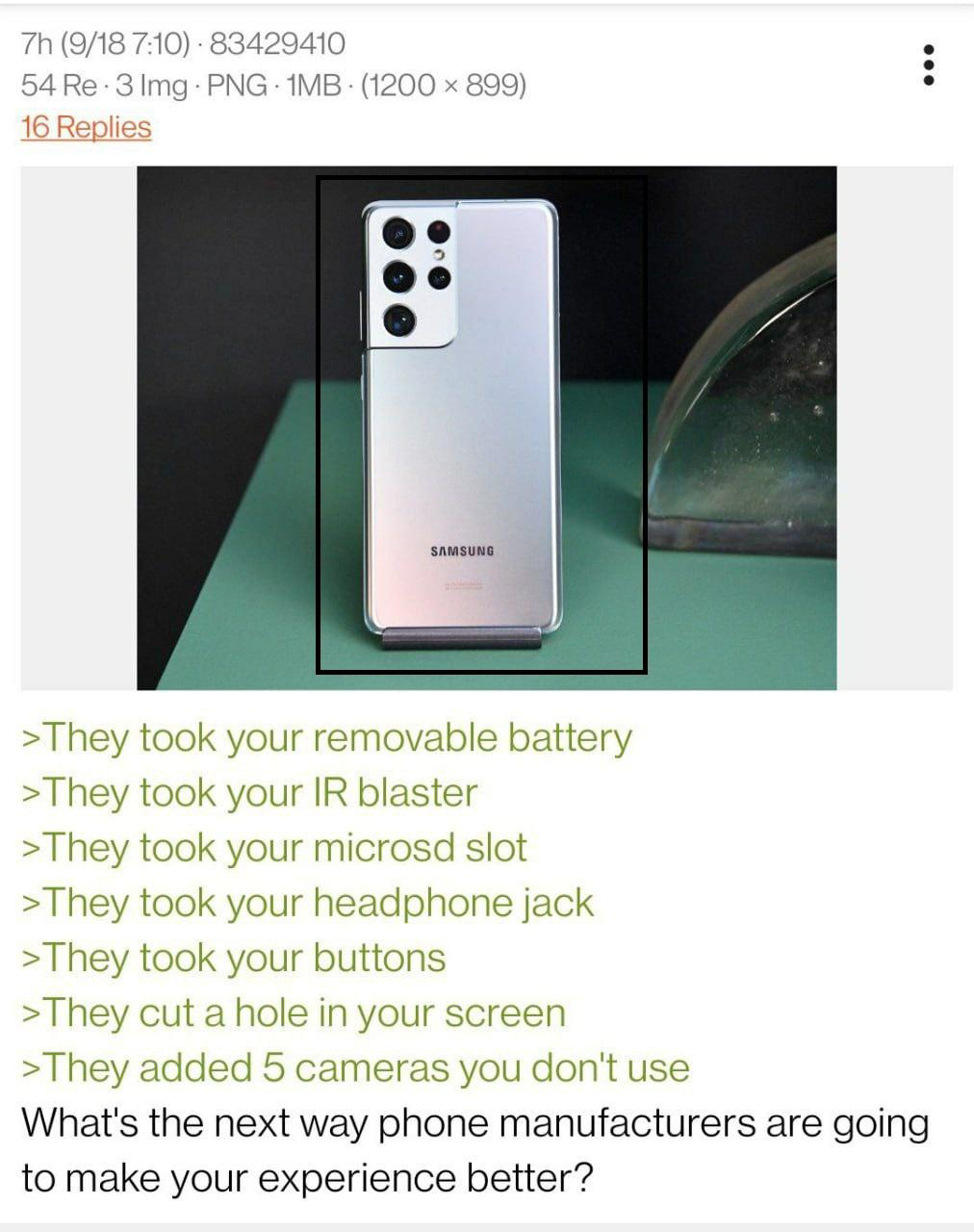this post was submitted on 14 Jan 2024
1437 points (97.4% liked)
Greentext
5208 readers
2008 users here now
This is a place to share greentexts and witness the confounding life of Anon. If you're new to the Greentext community, think of it as a sort of zoo with Anon as the main attraction.
Be warned:
- Anon is often crazy.
- Anon is often depressed.
- Anon frequently shares thoughts that are immature, offensive, or incomprehensible.
If you find yourself getting angry (or god forbid, agreeing) with something Anon has said, you might be doing it wrong.
founded 1 year ago
MODERATORS
you are viewing a single comment's thread
view the rest of the comments
view the rest of the comments

Do many people know that there is actually a patent for the idea of an advertisement that plays to a certain point... and then does not end, will not let you skip it, until you as the user, via a camera and microphone, can be verified to have assumed a pose, made a facial expression, and/or said a specific phrase?
The actual patent shows a smart tv 'owner' standing up and saying McDonalds! in order to like keep watching Netflix.
We quite literally have the tech and the legal framework for 'Drink Verification Mountain Dew Can' to actually be a thing.
The illustration of that patent practically a meme, many on Lemmy should know it.
Though it should be kept in mind there's thousands of patents that were never actually applied, and this one was filled back in 2009.
Do patents necessarily have to follow the law?
This is genuinely a good thing, then. If you patent something and "accidentally" never use it, it prevents other companies from using it legally. Screw over advertisers and save the consumers from their terrible ideas by hoarding patents and working with a patent troll firm :)
Not really. Patests expire and then they can just read the specs in your idea. No reverse-engineering effort required.
It takes 20 years for patents to expire, and you can't commercially use the patented invention until then. If I "invent" and patent 50 different methods to track viewer attention during video advertisements, that's 50 fewer ways that some company would be able to achieve it.
It would be impossible to cover every possible method to achieve the same thing, but the risk of violating a patent held by a highly litigious patent troll might be a good enough deterrent to stop the whole idea from making it to market for a couple decades.
Yes, but after 20 years you're not at square one, others have free reign to use and abuse your expired patent. Sure, you can tacticize patents in a way where you make a starting patent, then before it's about to expire "expand" it with a new one in a way which invalidates use of the previous, but I don't know if that "loophole" is patched and if not, how it looks in real life.
That is an entirely valid concern, and I see where you're coming from with that. It would be short-sighted to introduce something revolutionary, only to open the floodgates for everyone else to start implementing it two decades later.
I was thinking of using patents more along the lines of "throw shit at the wall and see what sticks." Rather than trying to come up with every conceivable method for tracking user attention and patenting those, the hypothetical patent troll would create and patent hundreds of different smaller, novel processes that may or may not be needed as part of a larger system for tracking user attention. The overall goal being to make it likely enough for one or more of those patents to be violated that a company would consider it too risky to go anywhere near the idea of commercializing attention tracking software/hardware.
Eh? Do patents necessarily have to follow the law?
...no? They are ideas.
They are also a legal construct to organize business uses and control of ideas around.
Hence a patent and the patent system are a legal framework.
Legal frameworks are often involved in things that later end up being determined to be illegal.
Large businesses usually like to set up some kind of comprehensive legal framework before they roll out a new product or feature.
Not saying they will. I am saying setting up a legal framework is usually groundwork before you do though.